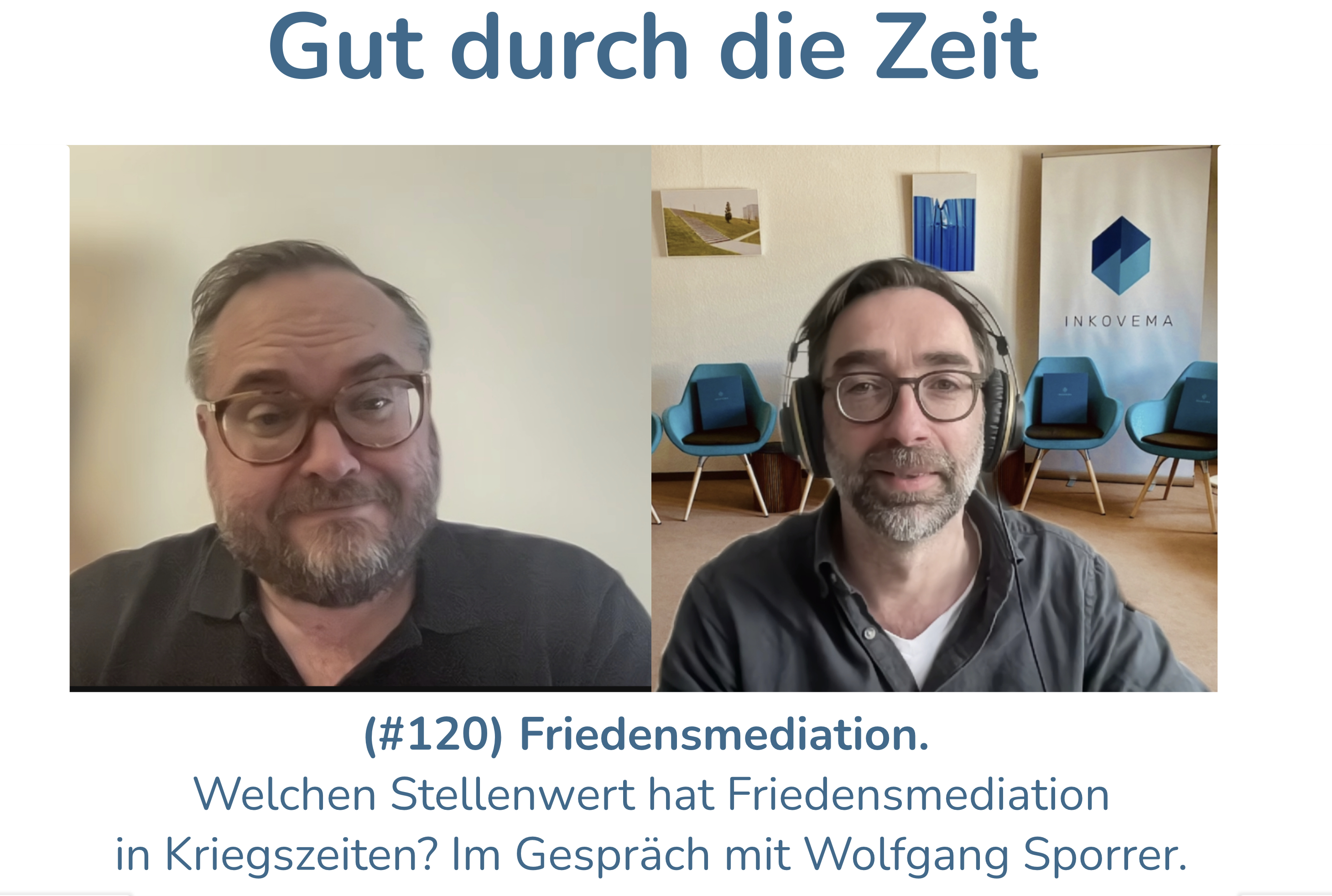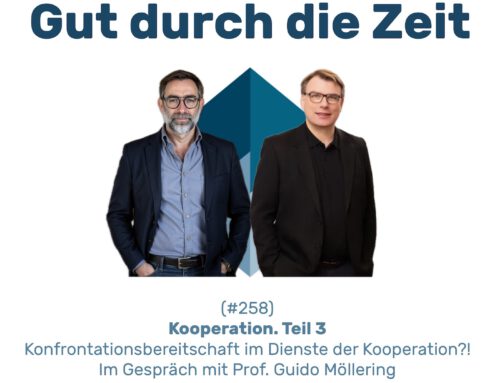INKOVEMA Podcast „Well through time“
#120 - Peace mediation. What is the value of peace mediation in times of war?
What to do in times of war when it is not realistic to start mediation with the aim of negotiating war and peace? In conversation with Wolfgang Sporrer
Well through time. The podcast about mediation, conflict coaching and organisational consulting.
Wolfgang Sporrer:
- Austrian, studied International Relations at John Hopkins University
- Once a diplomat in the service of the OSCE
- Experienced peace mediator as head of department for the humanitarian dimension of the OSCE mission in Kiev,
- Political advisor to the EU delegation in Moscow, previously deployed in Croatia, Bosnia, Herzegovina and Kosovo.
- Now teaches conflict management at the Hertie School in Berlin.
Contents:
Peace mediation refers to the voluntary mediation of conflicts by a third party in formal and informal negotiation and dialogue processes that is accepted by all sides. The possible applications range from conflict prevention and support for ceasefire negotiations to the implementation of agreements and associated political reform processes at various levels of society (so-called "tracks").
Peace mediation is an important approach to resolving conflicts around the world. The method of peace mediation involves the involvement of impartial third parties who help the conflicting parties to overcome their differences and find a peaceful solution.
You have to set a realistic goal for peace mediation. This is currently impossible in the war between Russia and Ukraine.
What is a realistic goal, however, is to organise a short-term local ceasefire for civilians for sowing, because neither side has any war advantage from not sowing.
Peace mediation is a process that aims to resolve conflicts between two or more parties. The mediator acts as an intermediary between the parties in order to reach a peaceful solution. Peace mediation can take place at different levels, including international conflicts, domestic conflicts or between individuals and groups. By helping to verbalise communication again and getting the parties to communicate their points of view and interests at the negotiating table, it can help the parties to understand each other better and facilitate a principled, non-violent approach. On the other hand, peace mediation offers a flexible and adaptable solution for complex conflicts. There is no standard approach or standard solution for all conflicts, and the mediation method allows the parties to find a solution tailored to their specific needs.
Another important advantage of peace mediation is that it can be carried out almost free of charge for the parties.
Peace mediation can also help to promote long-term stability and peace. By creating a common basis for cooperation and dialogue, it can help to build trust between the parties and foster long-term relationships. This can help prevent conflict in the future.
The main problem in the course of a war is starting mediation and conflict negotiations. This is where – as with mediation – the greatest difficulties lie in practice. Wolfgang Sporrer uses Russia's current war of aggression to show how it could nevertheless succeed.
Motivations and motives of warring parties to start and maintain (mediated) negotiations:
- Motivation to achieve peace on acceptable terms (which includes willingness to negotiate and move).
- Motivation to deceive the opponent or third parties about the willingness to make peace.
- Motivation to gain time because you believe you need this time.
- Motivation to obtain information that can only be obtained at the negotiating table with the enemy.
Further links to interviews with Wolfgang Sporrer:
- Very good interview on te.ma
- DeutschlandfunkDeutschlandfunk from 23 February 2023
More podcasts on peace mediation and Russia's war of aggression against Ukraine





Leave A Comment